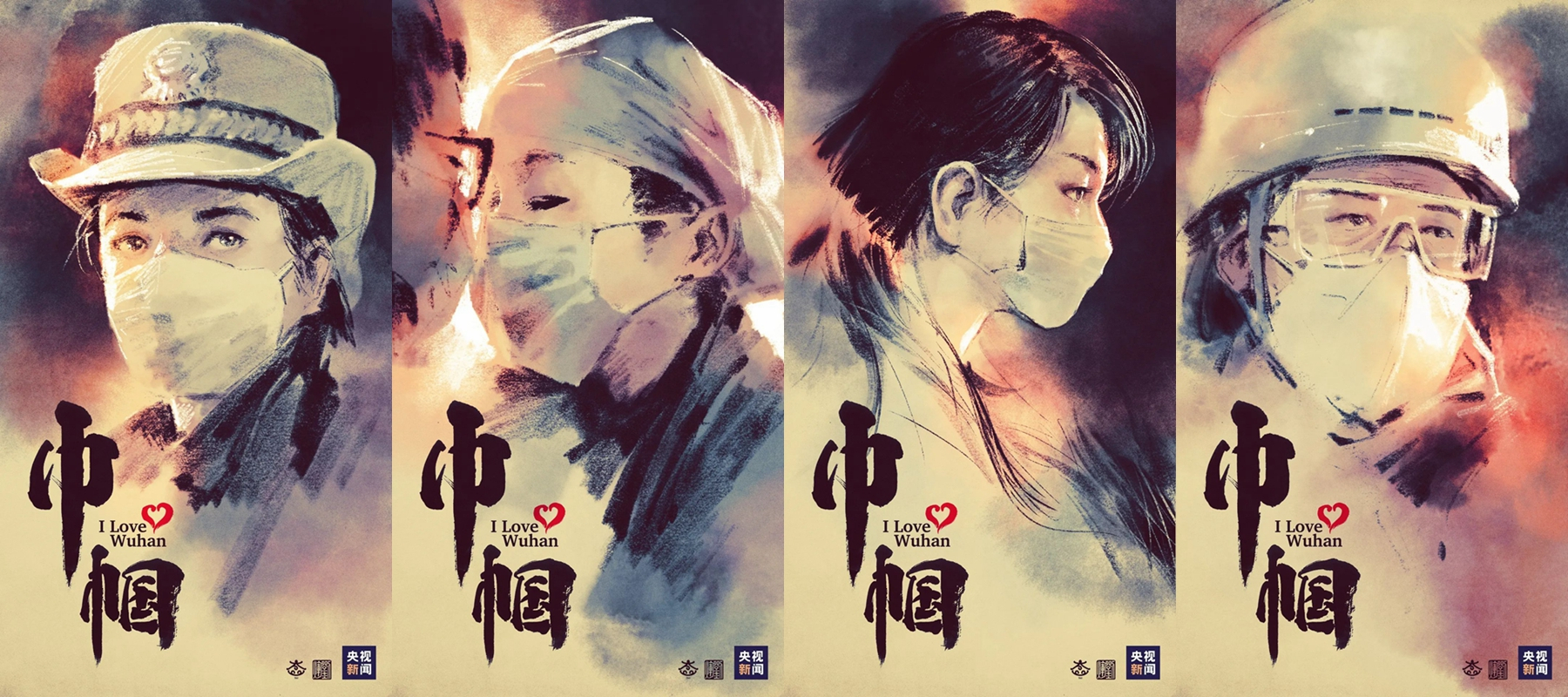
A series of posters for the female COVID-19 frontline workers was released by CCTV News on International Women's Day. /CCTV News
A series of posters for the female COVID-19 frontline workers was released by CCTV News on International Women's Day. /CCTV News
China's State Council Information Office (SCIO) held a press conference in Wuhan to mark International Women's Day, with six female frontline workers invited to share their stories and thoughts about fighting against COVID-19.
Since the outbreak began in late December 2019, thousands of female workers performing different jobs have been devoted to the battle against COVID-19 in China, fighting alongside their male peers to save the infected.
The panel included medical staff, a sanitation worker, journalist and volunteer who have been serving in the COVID-19 epicenter, Wuhan, central China's Hubei Province.
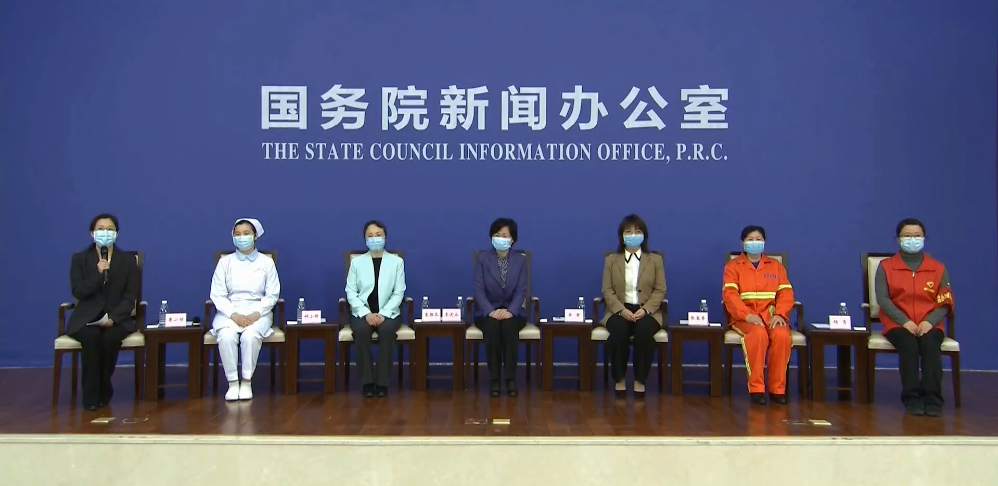
Female frontline workers at a press conference held by China's State Council Information Office (SCIO) to mark International Women's Day, Wuhan, China. /CGTN
Female frontline workers at a press conference held by China's State Council Information Office (SCIO) to mark International Women's Day, Wuhan, China. /CGTN
Female guardians of health and happiness
Since the COVID-19 outbreak began, more than 40,000 medical staff from across the country have rushed to Hubei. Yuan Yadong, head of the Hebei medical team, is one of them.
Yuan said she didn't hesitate, even for a second, to join the support medical team and left home on January 26, the second day of Chinese New Year.
"We are racing against time, and each minute, each second, counts, as it means life and hope for the patients," she said.
According to Yuan, she and her colleagues treat about 190 patients on a daily basis, and over half of them are severe or critical cases. After 43 days on the job, more than 250 patients have been discharged.
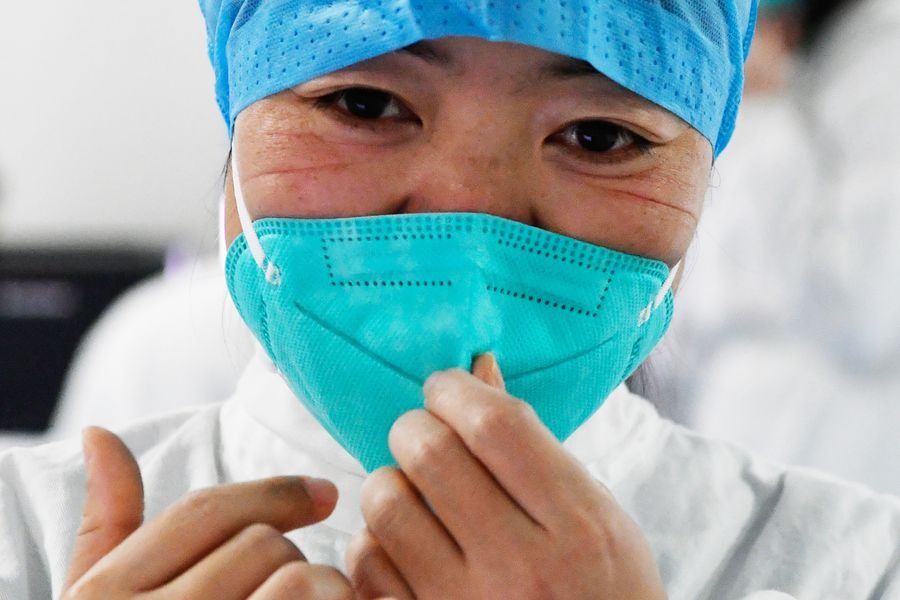
Marks caused by masks are seen on the face of a female medical worker at Fuzhou Pulmonary Hospital of Fujian in Fuzhou, southeast China's Fujian Province, January 31, 2020. /Xinhua
Marks caused by masks are seen on the face of a female medical worker at Fuzhou Pulmonary Hospital of Fujian in Fuzhou, southeast China's Fujian Province, January 31, 2020. /Xinhua
"Whether it's SARS or influenza, we're dealing with them as doctors of the respiratory and critical medicine department, and my team and I are always working on the front line," said Yuan.
"This year's Spring Festival, we marched on a new journey. All we do, under the masks and protective suits, is safeguard the happiness and health of all people living on the land," she added.
Women have fought day and night on the front line to rescue COVID-19 patients, especially ICU doctors and nurses, who are widely considered to be "the fighters between life and death."
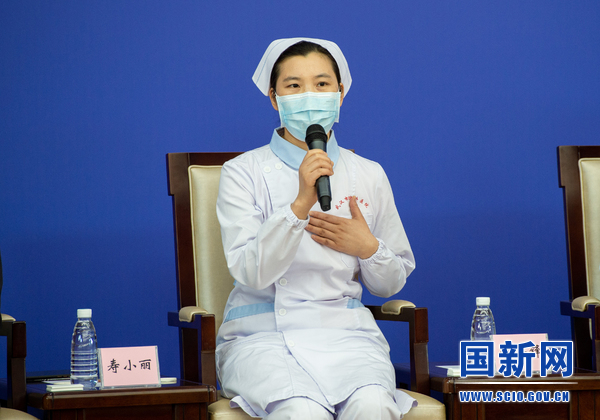
Zhong Xiaofeng, a chief nurse who has been working in the intensive care unit (ICU) of Wuhan Pulmonary Medicine Hospital for 16 years, tells her story at the press conference. /SCIO
Zhong Xiaofeng, a chief nurse who has been working in the intensive care unit (ICU) of Wuhan Pulmonary Medicine Hospital for 16 years, tells her story at the press conference. /SCIO
"The ICU is the last defense line of life, so we are literally racing and fighting with death all the time," said Zhong Xiaofeng, a chief nurse who has been working in the intensive care unit (ICU) of Wuhan Pulmonary Medicine Hospital for 16 years.
"We are a strong team, and I will work alongside all of the team members until the end of this battle," she added.
Zhong said that she hoped the epidemic will be over soon, and at that time she would like to give her colleagues warm hugs and kiss her daughter.
'She power' in a war without flames and smoke
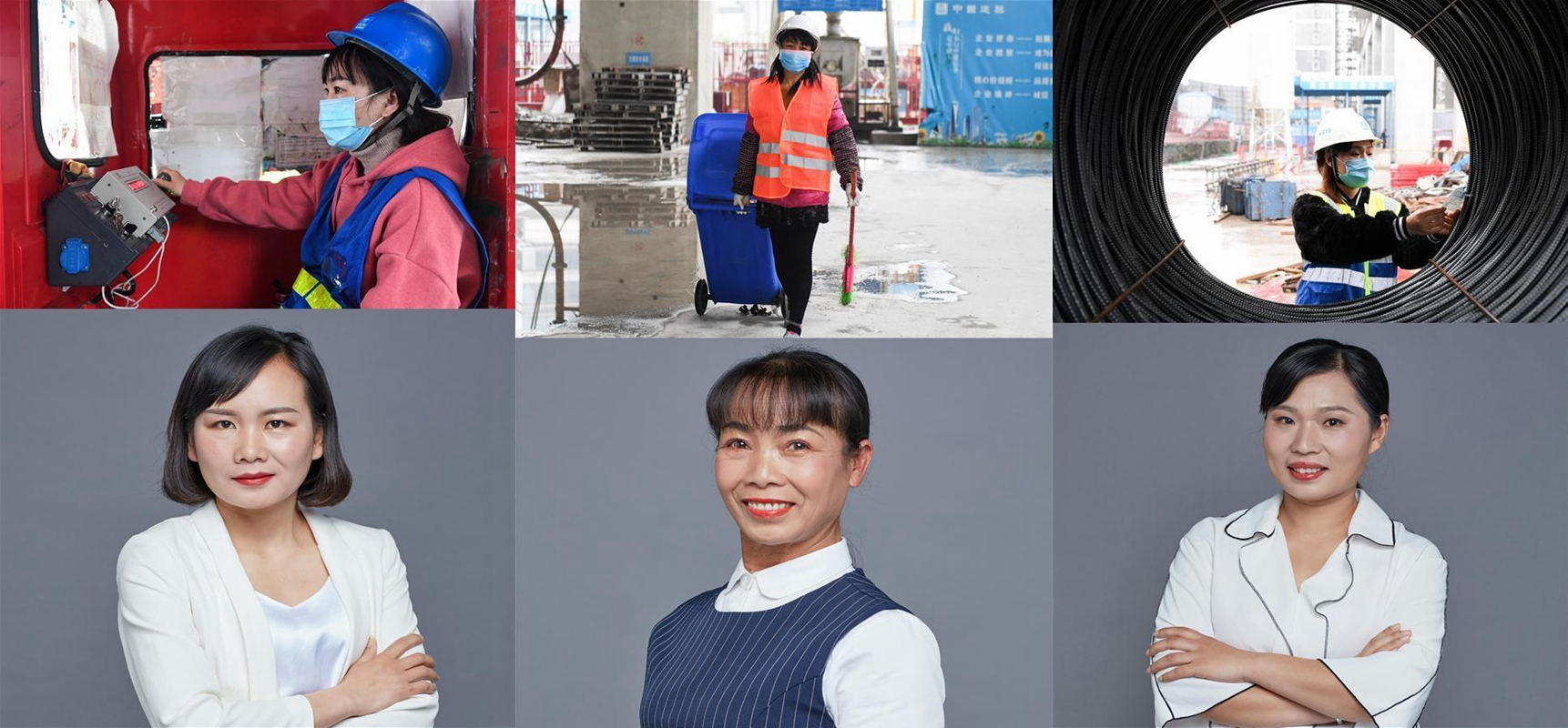
Combo photo shows female workers at their posts during the epidemic and posing for a photo at a photography studio. /Xinhua
Combo photo shows female workers at their posts during the epidemic and posing for a photo at a photography studio. /Xinhua
Zhang Chunxiang is a sanitation worker who volunteered to join a temporary sanitation team to help do the cleaning work at Wuhan Union Hospital. Since the end of the January, she has been doing disinfection, mopping and garbage packing in the ICU on a daily basis, facing high risk of infection in the process.
Zhang revealed that she felt afraid and worried about being infected in the beginning, but thanks to the doctors and nurses, who told her and her colleagues how to protect themselves, she quickly abandoned her concerns.
"This work must be done by someone, and I am a veteran sanitation worker with more than 10 years of experience," said Zhang, adding, "and all my children have grown up, I don't have a lot of family burdens. So I have to stand up, and signed up for it as soon as possible."
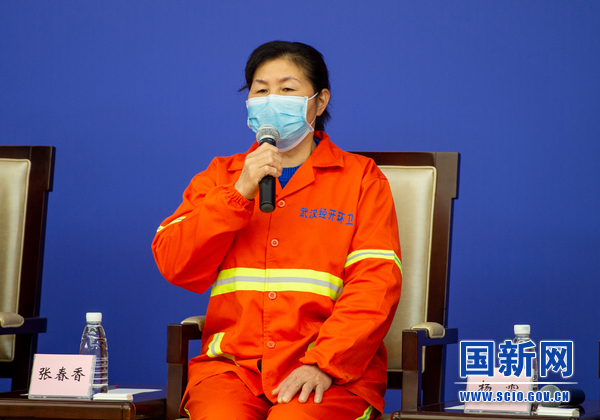
Zhang Chunxiang is sanitation worker who volunteered to join a temporary sanitation team at Wuhan Union Hospital. /SCIO
Zhang Chunxiang is sanitation worker who volunteered to join a temporary sanitation team at Wuhan Union Hospital. /SCIO
Liao Jun, a journalist with the Hubei Bureau of Xinhua News Agency, has been reporting on the fight against COVID-19 in Wuhan since December 30.
"I know every street and all the emotions of the people living in the city, which is a reminder that I have to tell the world the stories that Wuhan has experienced as a heroic city," said Liao, who has spent more than 20 years living and working in the city.
Liao said over the past two months, she, like her female colleagues, had no time to return home.
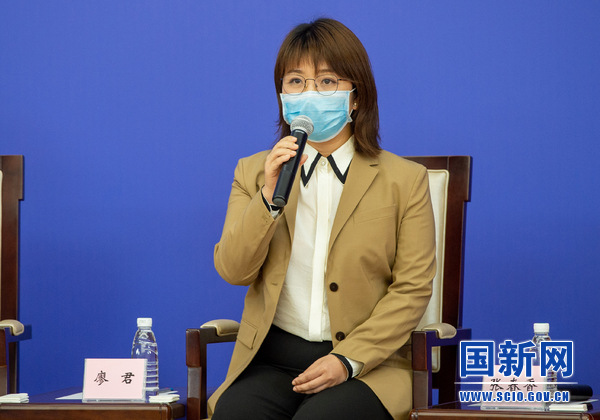
Liao Jun, a journalist with the Hubei Bureau of Xinhua News Agency, has been reporting on the fight against COVID-19 in Wuhan since December 30. /SCIO
Liao Jun, a journalist with the Hubei Bureau of Xinhua News Agency, has been reporting on the fight against COVID-19 in Wuhan since December 30. /SCIO
Referring to the fight against the epidemic as a war without flames and smoke, she said, "In this war, we have never given up, and always insisted that we should use the pens and lens in our hands as weapons."
Liao also revealed that what she wants most after the epidemic ends is to go out for breakfast with her family, and see the streets become busy as usual.